In the logistics industry, quantum computing is earmarked as a key trend within the next five to ten years. With quantum computers, logistics providers can optimise supply-chain processes with real-time dynamics, out of reach on regular desktop computers or even supercomputers.
The fast and dynamic optimisation of routes continues to trouble the industry, where expectations of speed and cost-effectiveness are high. Quantum computers will allow an improvement at this stage very soon.
Quantum computers will also be important in building a new, more resilient generation of supply-chain infrastructure. They will improve reallocation and planning of assets in the case of unexpected events (for example shutdowns, late shipments, or order cancellations).
- First formulated in 1930, the ‘Traveling Salesman Problem’ (TSP) is an algorithmic problem used to calculate the most efficient path between a set of points.
- The more points there are, the higher the number of possible unique paths. It is an NP-hard problem in combinatorial optimization, important in theoretical computer science and operations research.
- While trying all possibilities is an option, it is also the most time-consuming and computationally expensive method. Quantum computers will be faster than conventional computers in finding the optimal route.
In logistics, the application of quantum computing is a good fit, since the last-mile delivery process requires an optimized route that allows for the delivery of a series of packages to different addresses in the shortest time possible.
Quandela’s Use Cases
Clients: Thales
Challenge (What): Solve shortest path graph problems.
Application (Why): Today, with the exponentially increasing number of unmanned drones in use, the complexity of air-traffic management has also increased. To ensure the safety of the skies, drones require quick reaction times and efficient routing, a difficult problem for conventional trajectory calculation methods. We use a Quadratic Unconstrained Binary Optimisation (QUBO) approach on our photonic quantum computer to find the shortest path between a starting point and a termination point.
Methodology (How): With an appropriate encoding, variational algorithms can be used to solve minimization problems using QUBO.
Challenge: Efficiently encode any bounded matrix on a photonic quantum computer.
Application: Because graphs can be represented as matrices, our encoding can be used to solve a variety of graph related problems. In particular, we find algorithms which use this encoding to determine whether two graphs are isomorphic, or to find dense subgraphs of a fixed size in a given graph. These problems have a wide range of applications across many industries, such as air-traffic management, social networking, and chemistry.
Methodology: Boson sampling, a technically naturally suited to photonic quantum computers, can be used to estimate the permanent of a matrix. The permanent reveals properties of the input matrix and state of the photonic chip, which we use to solve important graph problems, improving on classical techniques.
Challenge (What): Perform reinforcement learning on a photonic quantum computer.
Application (Why): Reinforcement learning is a machine-learning model where an agent interacts with the environment that rewards desirable behavior and penalizes undesired ones. It has many applications, ranging from game theory to self-driving cars.
Methodology (How): Quantum reinforcement learning uses a round of amplitude amplification, which facilitates the search for rewarded actions.
Quantum Computing Use Cases Explained: Logistics Infographic







